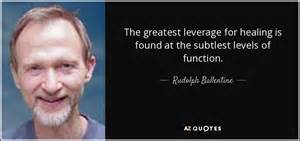A Quote by Eve Ensler
My commitment originated in my own story and my own relationship to violence.
Quote Topics
Related Quotes
Love is when I am concerned with your relationship with your own life, rather than with your relationship to mine. . . . there must be a commitment to each other's well-being. Most people who say they have a commitment don't; they have an attachment. Commitment means, "I am going to stick with you and support your experience of well-being." Attachment means, "I am stuck without you."
The violence in the Executioner books is merely stage-dressing for dramatizing the commitment and dedication Bolan has to his ideals and the lengths to which he will go to honor them. We can learn this message of love and commitment and carry it into our own lives without the violence and bloodshed, and of course it is this wish that fuels the writing. I do not want my readers to pick up a gun and follow Bolan's example; I want them to be stirred by his commitment and to find ways to meet the same challenges without resort to violent means.
When you do these things, you sort of take the journey. The journey is all about how I can interweave the Oscar Wilde story, the story of Salome, the play itself and what it is, what it contains, and my journey as an actor, as a director, as a filmmaker, as a person struggling with whatever I'm struggling with - my own celebrity, my own life. This is semi-autobiographical in terms of my commitment to this kind of thing.
Each of us is our own story, but none of us is only our own story. The arc of my own personal story is inexplicably and intrinsically linked to the story of my parents and the story of my neighbor and the story of the kid that I met one time. All of us are linked in ways that we don't always see. We are never simply ourselves.
I was working within a figurative representational framework, and there was a sense of reading the painting as a transparency, or truth, or autobiography, which I think is partially the burden of artists of color - or women, or anybody who is representing a so-called minority position. Are you actually telling a true story, or your own story? You don't just get to tell a story. The readings of the work didn't necessarily conform to my own understanding of mythology, where violence and eroticism and the body and all of these different forms coexist all the time.
A lot of the book [The Yoga of Max's Discontent] is about karma and rebirth. Things like that are very attuned to my life as an Indian, but when I approach it from a perspective of a Westerner, then I have a skeptical, yet kind of novice view on it. I think that choice really liberated the story to be its own story. A lot of the conclusions that Max reaches on his own are not mine at all. So, I think that allowed the story to take on its own momentum, to have its own propulsive force.
My approach to violence is that if it's pertinent, if that's the kind of movie you're making, then it has a purposeI think there's a natural system in your own head about how much violence the scene warrants. It's not an intellectual process, it's an instinctive process. I like to think it's not violence for the sake of violence and in this particular film, it's actually violence for the annihilation of violence.
Farm workers everywhere are angry and worried that we cannot win without violence. We have proved it before through persistence, hard work, faith and willingness to sacrifice. We can win and keep our own self-respect and build a great union that will secure the spirit of all people if we do it through a re-dedication and re-commitment to the struggle for justice through non-violence.






































